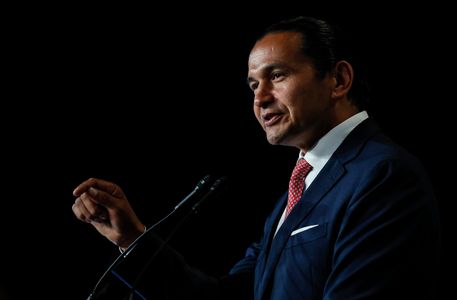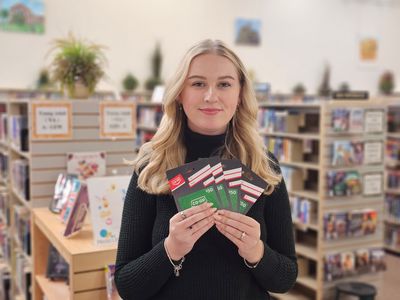Local News
PCRC expands programs and services in Portage
Portage Community Revitalization Corporation (PCRC) Executive Director Mari Kozar recalls her first day on Jan. 2, 2019. At that time, the office had just moved upstairs at 56 Royal Road North, and the team included only eight staff. Nearly six years later, PCRC has grown to 27 employees across both its main office and its youth hub project. Kozar credits her predecessor for helping her establish direction in those early days. “Victoria Espey had an excellent handle of things at PCRC,” notes Kozar. “She taught me a lot about our organization and how to fill gaps in our community.” Youth programs and new initiatives The Youth Hub now operates with a large staff of nine, including Program Coordinator Shaye Lernowicz, who works closely with Kozar on new programming. An expansion is already in motion, with Huddle funding arriving in January 2026 that will introduce a clinical component and additional supports. Meanwhile, the main office continues to deliver its core programs. Community facilitation assists organizations with capacity-building, grant writing, and small grant distribution. The fall intake has recently closed, with results expected soon. “We still have our core programs with our community facilitator that helps build capacity with other organizations,” says Kozar. “They write grants, they give out our small grants, and they can support anybody through that process.” Community connection and cleanup PCRC also runs the Connecting Communities program, which delivers free public events in Portage. Its Green Team manages graffiti removal and community cleanups during the summer, with free supplies available for residents who want to take part in Beautification Days efforts. Another initiative is the Local Immigration Partnership, led by Mitch Tilk and an assistant. They collaborate with the Portage Learning and Literacy Centre to address service gaps for newcomers. Alongside that, the Urban Indigenous Strategy is funded by Indigenous Services Canada and coordinated by Lauren McKay. “She works to make the community more welcoming for urban Indigenous people,” adds Kozar. “She has a coalition of members of different organizations who work to make change in their own organizations towards reconciliation.” Related stories: New youth hub to expand support in Portage Youth Hub sees record growth in Portage Housing and direct support Housing support is one of PCRC’s busiest areas. The Housing First and Reaching Home programs provide assistance with everything from ID applications to eviction prevention. Case managers help residents understand tenant responsibilities and navigate repairs, while intensive case managers work almost daily with clients who need greater levels of support. Kozar continues, “We see a lot of people come to PCRC who need support with housing, but it really varies where they are at in that stage. They might need income connection first, they might need IDs, they might need eviction prevention support.” PCRC also offers a community mailbox for those without a safe mailing address. Recent projects include a fourplex developed with the City of Portage and TurnKey Property Management, highlighting the growing demand for affordable housing. Seniors, wellness, and wraparound supports The organization also employs an Indigenous seniors resource coordinator to help residents age in place while incorporating cultural traditions. Its Wawokiya program recently expanded to three staff, offering cultural navigation, wellness counselling, and wraparound supports for clients facing multiple barriers. Kozar says, “If somebody is facing multiple barriers to accessing services, and they need support from more than one organization or agency, they might be brought forward to that table and have a wraparound support team built for them so they can be really successful.” A leading rural NRC With 27 staff, PCRC is among the largest rural neighbourhood renewal corporations in Manitoba. Kozar emphasizes collaboration, pointing out that PCRC does not duplicate existing services but looks for gaps and partners with other organizations to address them. “We always say we do nothing without our partners,” says Kozar. “We never want to duplicate something, but we’re always looking to fill those gaps.” PCRC now sees between 20 and 40 daily drop-ins at its main office, while the youth hub continues to grow busier. New projects, including the Argues Hub Project celebrating its first year, have shown strong community interest. Kozar adds, “We’re always working on something new, and we’re always open to new ideas. If a partner doesn’t have the capacity to roll something out, but they see it as a gap, we’re always happy to listen and hear how we can do that.”







